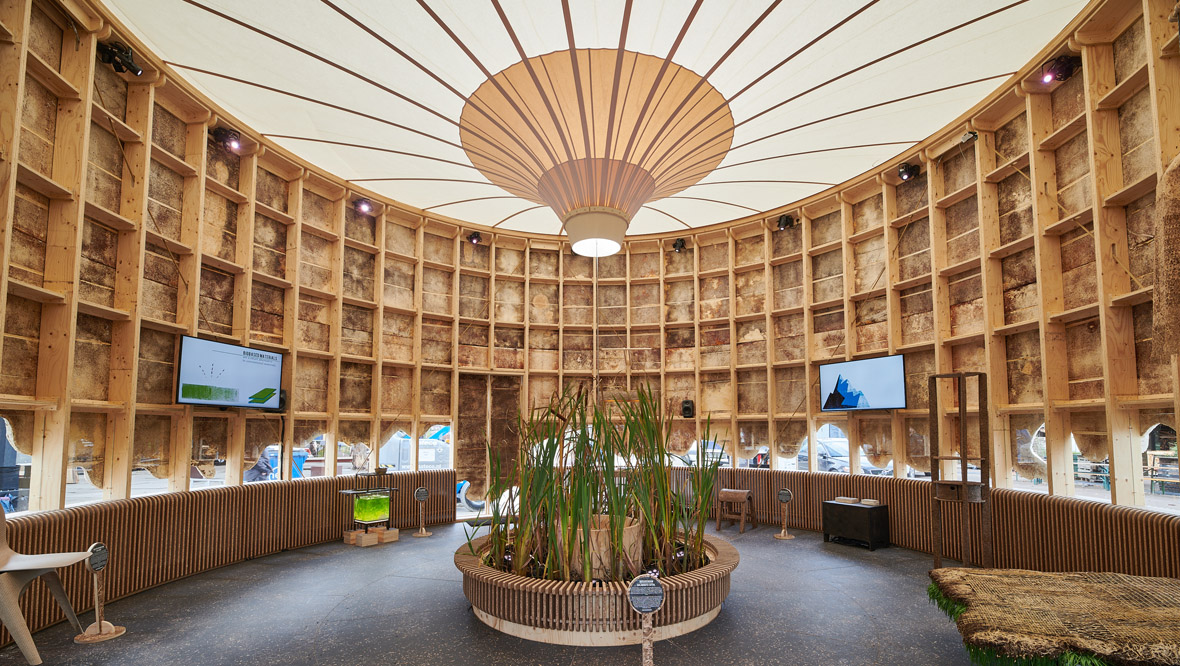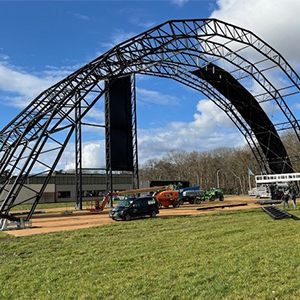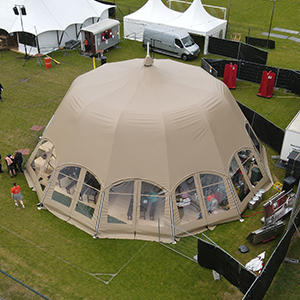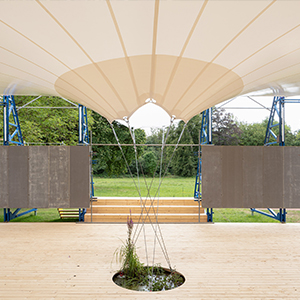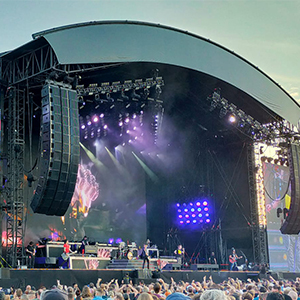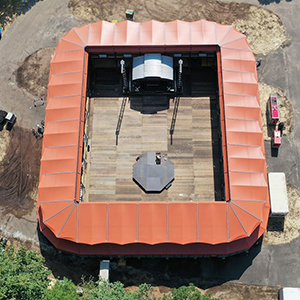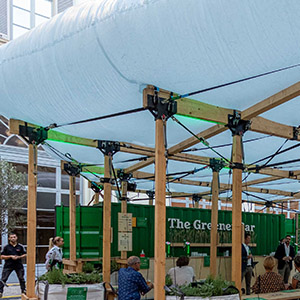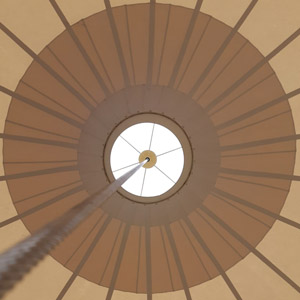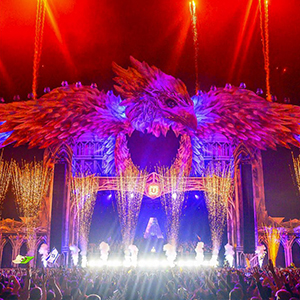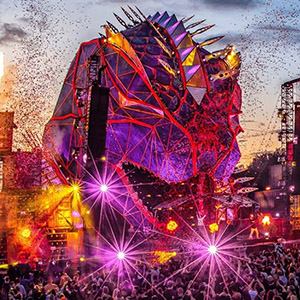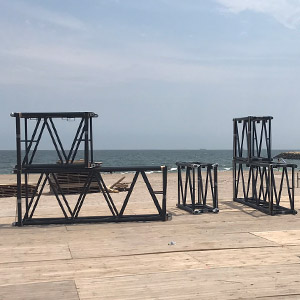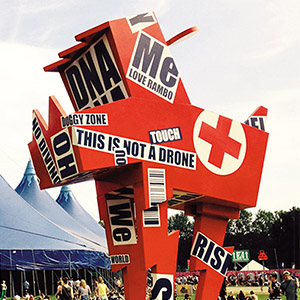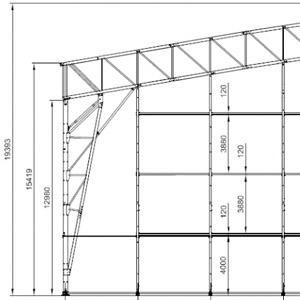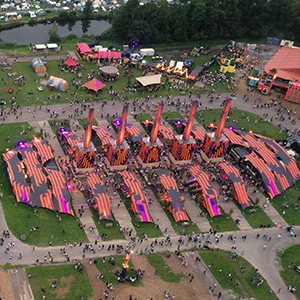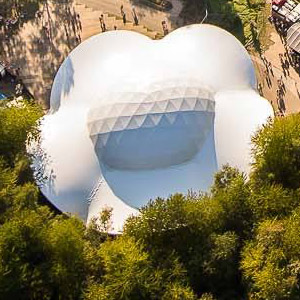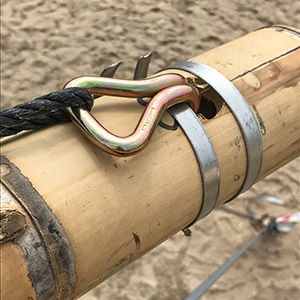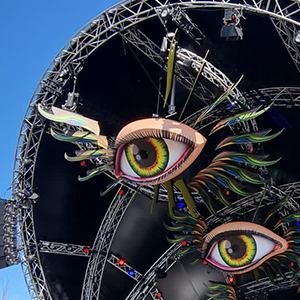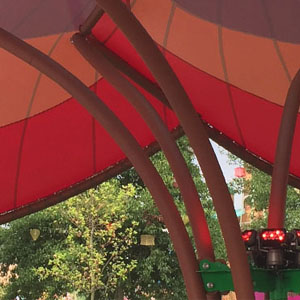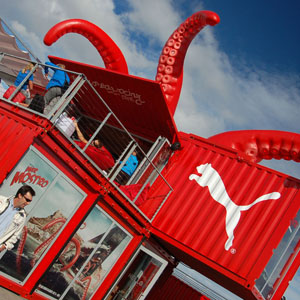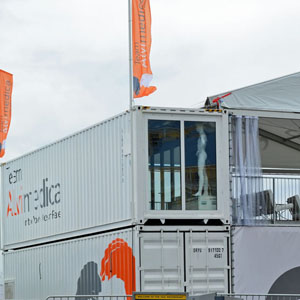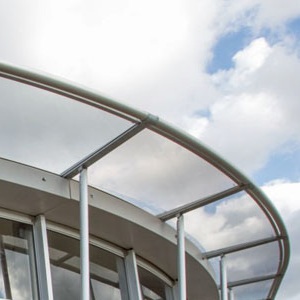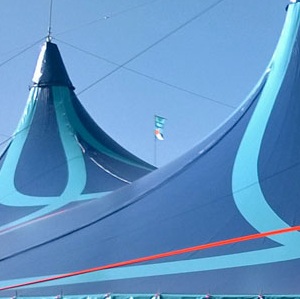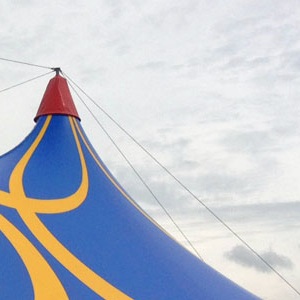GROWING PAVILION
The basic concept of the Growing Pavilion was to apply as many natural and sustainable materials as possible. This is an interesting challenge and a search for the ideal solution. Together with designer Pascal Leboucq van Nieuwe Helden and the construction team of Fiction Factory, we took this challenge.
During the design process of the Growing Pavilion, Tentech took care of translating the design into a technically and structural feasible concept. From a structuralpoint of view this is mainly about safety. For this we follow the current standards and rules. However, these standards and rules are made for conventional building materials. Sustainable and non-conventional alternatives usually do not fit in well. At Tentech, however, we are used to thinking “out of the box” and work often with special materials, such as textiles, bamboo, cardboard or printable plastic. Relentlessly structural safety always has to be the priority.
Natural materials are often less strong and have (natural) structural deviations. Therefore, higher safety factors are applied. This increases the profile dimensions, resulting in elements or connections becoming more massive. It’s a balance of concept, aesthetics and structural safety.
The use of cotton cloth as a conic-shaped roof membrane is also a challenge. In particular, the low tensile strength and the shrinkage behaviour of the material (approx. 4%) are absorbed in an adaptive way in order not to generate excessive internal forces in the fabric, the ring beam and the anchoring. From a structural point of view, the roof does not participate in the stability of the pavilion. This makes it possible to create a flexible attachment for the membrane. As a result, we were able to use elastic cords for fastening the top edges of the roof and for tensioning the low point. In this way, larger deformations can be absorbed and the fabric can return to its original shape.
When making a structural design, the trick is to use every material as durable and efficient as possible. At Tentech, we love this art.
Pictures: Oscar Vinck and Tentech




